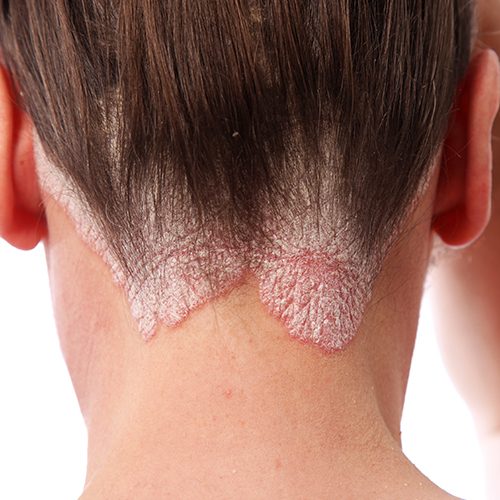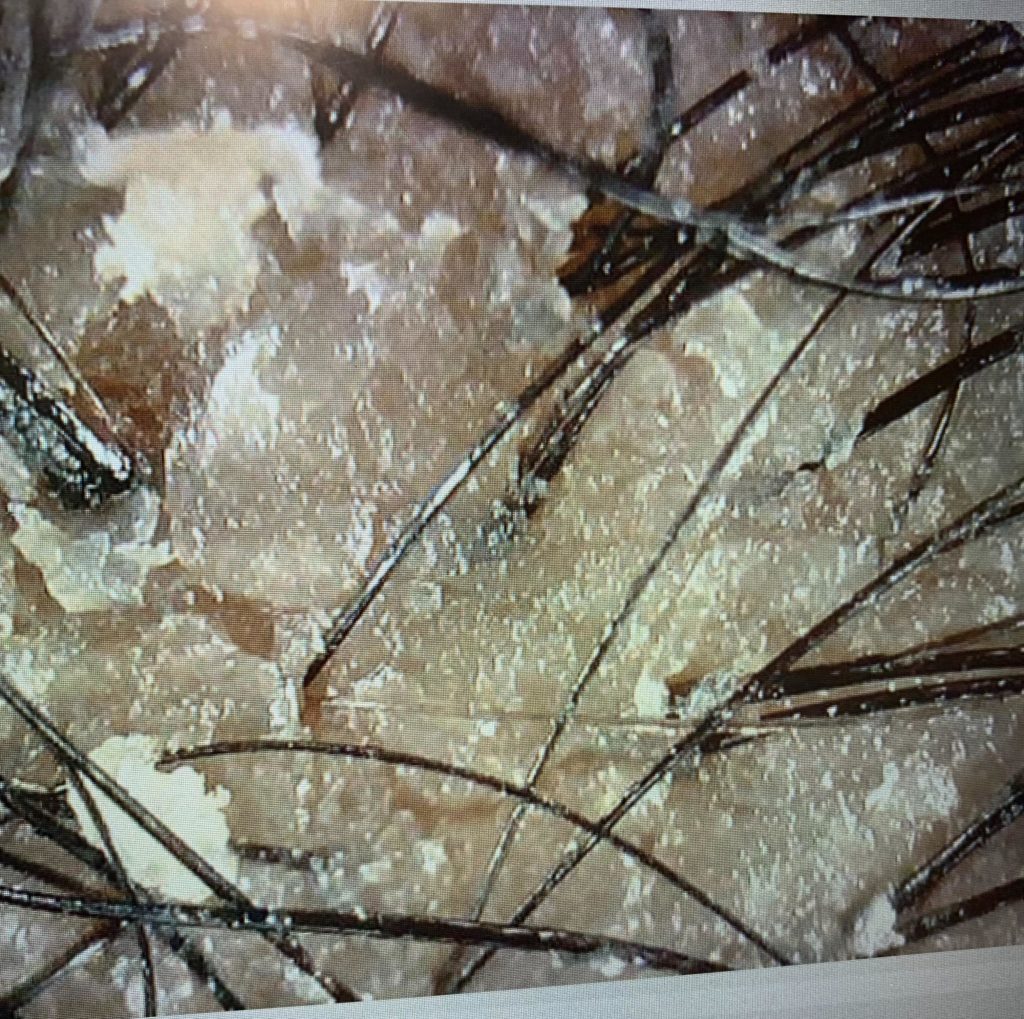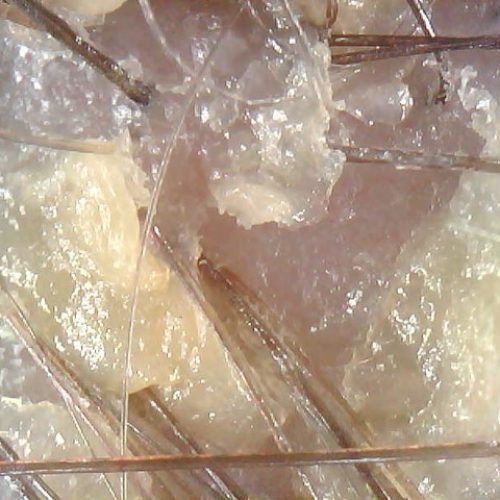Types of Scalp Disorders
The primary cause of hair loss for men and women all around the world is dihydrotestosterone (DHT), a powerful hormone formed by an enzymatic reaction with tissue responsive scalp skin.
Paying special attention to the scalp is essential for people who are experiencing hair loss or scalp disorders. In trichology, we focus on the importance of a therapeutic scalp regime. This regime consists of organic shampoos, conditioners, vitamins/minerals and amino acids that help nourish and activate the hair follicle to produce healthy strong hair.
Dandruff is the most misdiagnosed scaly disorder and used as a blanket term for most scaly issues. Dandruff is very light and powdery. It is a normal condition that everyone has to some degree. Skin cells on the body are manufactured constantly to replace those that have outlived their usefulness and die. Dead cells are continually shed as new ones are being pushed up from the deeper layers in a never ending process of cell division. Due to this cycle, you can never really get rid of dandruff because the scalp makes a new supply of flakes about every three to four days. The causes are unknown common factors; germs, bacteria, fungi living on the scalp, excessive production of oil from the sebaceous glands, allergies, poor hygiene, irritation from sulfate based shampoos, color and relaxers applied to the scalp.
As with the hair, these problems can be symptomatic of some other metabolic variation. Stress, poor diet, or even some allergies to certain foods, can be responsible for the build up and shedding of dead skin cells. The management of hair and scalp that are excessively oily is another area in which the advice of a qualified Trichologist is often sought. Here, guidance on the right type of shampoo for any particular individual, and on its frequency of use, might be particularly relevant.
Psoriasis
Psoriasis is a common scaling skin disease which affects around 1 to 2 percent of the population. Most psoriasis sufferers will develop problems of the scalp at some time, and the condition is both distressing and cosmetically disfiguring. However, psoriasis does not generally cause permanent loss of hair.
Psoriasis is patches of red inflamed skin covered by silvery white scales. It is often precipitated by upper respiratory infections, strep throat, alcohol use, certain oral medications (lithium and antimalarial drugs).


Seborrhea Dermatitis
Seborrhea dermatitis skin has a thick crust, the cause are unknown but theories are: dietary indiscretion, environmental factors, hereditary predisposition. Avoid white and refined foods: sugar, sodium, cow milk (only organic), fried foods, juices, soft drinks. Replace with raw fruits, vegetables, baked or grilled meats.
Pityraisis Steatoides

Get the latest updates first!
Let’s Connect
If you would like to schedule a consultation to discuss your hair and scalp treatment feel free to contact us using the form below.

